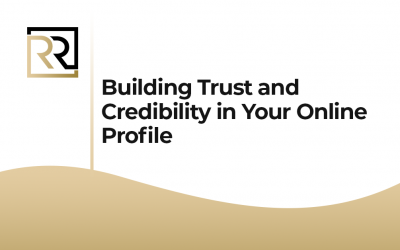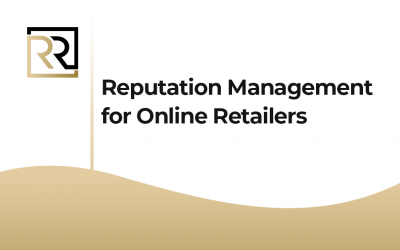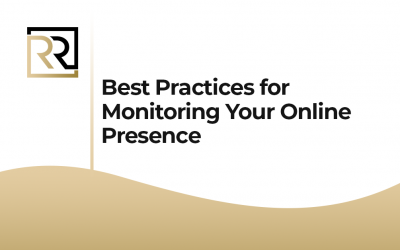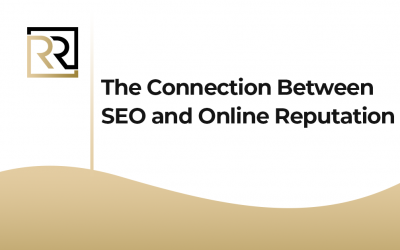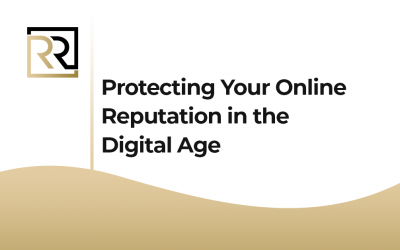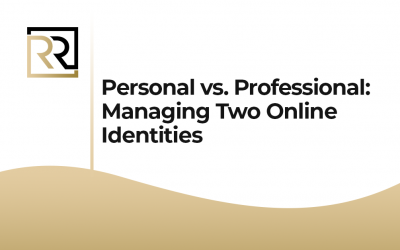The Crucial Role of an Online Reputation Strategy for Every Business
Further, in the age of digital connectivity, the reputation of a business is no longer confined to word-of-mouth recommendations; it now extends to the vast realm of the internet. With consumers increasingly relying on online information, every business, regardless of size or industry, needs a well-defined Online Reputation Strategy and corporate reputation management. This article will explore the importance of such a strategy, its impact on business success, and key steps to formulate an effective plan.
The Digital Landscape and Its Impact
- The Pervasiveness of Online Presence: So, in today’s digital landscape, the majority of consumers turn to the internet for information before making purchasing decisions. Moreover, this shift has elevated the importance of a business’s online presence, making it a critical factor in shaping consumer perceptions.
- The Influence of Online Reviews: Moreover, online reviews wield immense influence over consumer choices. Also, studies consistently show that a significant percentage of consumers trust online reviews as much as personal recommendations. Further, a positive online reputation can drive customer trust, while a negative one can deter potential clients.
The Need for an Online Reputation Strategy
- Building Credibility and Trust: Moreover, an effective online reputation strategy is paramount for building credibility and trust. Thus, a business with a positive online reputation is more likely to be perceived as trustworthy, reliable, and customer-oriented. Trust, once established, forms the foundation of long-term customer relationships.
- Competitive Advantage: Additionally, in a competitive marketplace, a positive online reputation serves as a distinct competitive advantage. Consequently, potential customers are more likely to choose a business with a stellar online reputation over competitors with less favorable reviews. Thus, it becomes a key differentiator in the decision-making process.
- Influencing Consumer Perception: Perception is reality in the digital age. Moreover, an online reputation strategy allows businesses to actively shape how they are perceived online. Furthermore, by curating positive reviews, showcasing customer testimonials, and managing online content, businesses can influence the narrative surrounding their brand.
Key Elements of an Effective Online Reputation Strategy
- Active Social Media Presence: Besides, Social media platforms are powerful tools for shaping online reputation. Also, an effective strategy involves maintaining an active presence, engaging with the audience, and addressing customer concerns promptly. Indeed, consistent, positive interactions on social media contribute to a favorable online image.
- Encouraging and Managing Reviews: Actively encourage satisfied customers to leave positive reviews on various platforms. Simultaneously, promptly address negative reviews with transparency and a commitment to resolution. Besides, managing reviews demonstrates responsiveness and a dedication to customer satisfaction.
- Optimizing Website Content: Indeed, a well-optimized website with positive, informative content is crucial for online reputation management. Therefore, utilize relevant keywords, highlight positive customer testimonials, and ensure that your website reflects the values and quality of your business.
- Utilizing Online Reputation Management Tools: What’s more, leverage online reputation management tools to monitor mentions, reviews, and overall online sentiment. Moreover, these tools provide insights into your brand’s online presence and help in proactively managing any emerging issues.
- Responding to Feedback and Criticism: Thus, constructive feedback should be embraced as an opportunity for improvement. Respond to both positive and negative feedback with professionalism. Demonstrating a commitment to addressing concerns and continuously improving enhances your online reputation.
The Impact of Online Reputation on Customer Acquisition and Retention
- Customer Acquisition: Furthermore, a positive online reputation directly influences customer acquisition. Also, potential clients are more likely to choose a business with a strong online presence, positive reviews, and a demonstrated commitment to customer satisfaction. Additionally, it serves as a persuasive factor in the decision-making process.
- Customer Retention: Beyond acquisition, an online reputation strategy contributes to customer retention. Therefore, satisfied customers who witness a business’s dedication to resolving issues and providing exceptional service are more likely to become loyal patrons. Further, a positive online reputation fosters a sense of trust and loyalty.
Overcoming Challenges and Proactively Managing Reputation
- Handling Negative Feedback: Moreover, negative feedback is inevitable, but the key is in how it’s handled. A well-crafted response to negative feedback, addressing concerns and showcasing a commitment to resolution, can turn a challenging situation into an opportunity for positive impact.
- Proactive Crisis Management: Additionally, an online reputation strategy should include a crisis management plan. Therefore, anticipate potential issues, outline communication strategies, and be prepared to address crises promptly and transparently. Also, proactive crisis management can mitigate reputational damage.
Measuring Success: Analytics and Key Performance Indicators (KPIs)
- Monitoring Search Engine Rankings: Also, regularly monitor search engine rankings for your business name and relevant keywords. Improved rankings indicate that your online reputation strategy is positively impacting your visibility.
- Reviewing Online Mentions and Sentiment: Furthermore, utilize online reputation management tools to monitor mentions and sentiment surrounding your brand. Track changes in sentiment and address emerging issues promptly.
- Analyzing Customer Reviews and Ratings: Also, track trends in customer reviews and ratings on various platforms. An increase in positive reviews and improved ratings reflects the success of your online reputation strategy.
Conclusion: Online Reputation Strategy
In the digital era, an Online Reputation Strategy is not just a luxury; it’s a business necessity. Furthermore, the impact of online perception on customer acquisition, retention, and overall success cannot be overstated. Also, by actively shaping a positive online reputation through strategic social media engagement, review management, website optimization, and crisis preparedness, businesses can not only weather the challenges of the digital landscape but also thrive in an environment where credibility and trust are paramount. Hence, embrace the power of online reputation management, and let it become a driving force behind your business’s success in the digital age.
Services
Our Services
Search Engine Content Removal
Social Media Content Removal
Positive Content Creation
Online Reviews Optimization
Search Results Optimization
Learn
Our Blog
Building Trust and Credibility in Your Online Profile
Building Trust and Credibility in Your Online Profile Further, in the digital age, establishing trust and credibility in your online profile is paramount for personal and professional...
Reputation Management for Online Retailers
Reputation Management for Online Retailers Further, in the fast-paced world of e-commerce, building and maintaining a positive online reputation is paramount to success. Thus, with countless...
How to Combat Fake Reviews and Protect Your Brand
How to Combat Fake Reviews and Protect Your Brand Wondering how to Combat Fake Reviews? In general, in the digital age, online reviews wield tremendous influence over consumer purchasing...
Best Practices for Monitoring Your Online Presence
Monitoring Online Presence In today's hyperconnected world, monitoring online presence plays a pivotal role in shaping your personal and professional reputation. Starting from social media...
The Connection Between SEO and Online Reputation
SEO and Online Reputation Further, in the digital realm, where visibility and credibility reign supreme, the relationship between search engine optimization (SEO) and online reputation...
Protecting Your Online Reputation in the Digital Age
Protecting Your Online Reputation In an era dominated by digital interactions and virtual connections, protecting your online reputation holds immense significance. Whether you're an...
The Power of Positive Online Branding for Entrepreneurs
The Power of Positive Online Branding for Entrepreneurs The Power of Positive Online Branding, in the dynamic world of entrepreneurship, establishing a strong online brand presence is not...
How to Effectively Use Google Alerts for ORM
How to Effectively Use Google Alerts for ORM Use Google Alerts for ORM, in today's digital landscape, maintaining a positive online reputation is essential for individuals and businesses...
Personal vs. Professional: Managing Two Online Identities
Online Identities - Navigating Personal and Professional Spheres in the Digital Realm In the digital age, where our lives seamlessly intertwine with online platforms, the question of managing...



